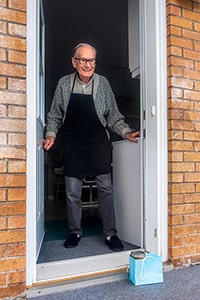There are numerous responsibilities when it comes to caring for loved ones, and if you are the primary caregiver of parents or family members, you know the day-to-day tasks require careful coordination. Caring for an aging loved one can become stressful without an effective support system and caregiving team. Whether you are leaning on friends, family, or hired professionals to support you, there are some things to keep in mind when coordinating a caregiving team.
Understand their medical needs.
If your loved one is under the care of a physician or medical team, it’s important to understand their medical conditions so you can understand their basic needs. By understanding their condition, you will be better equipped to care for and support them most effectively. For example, if your loved one has been diagnosed with Alzheimer’s, it is incredibly important for you to understand the disease, care plans, and what this means for them.
Communicate effectively.
Caregiving can be a shared responsibility amongst many people, so lean on your close network of friends and family for support when needed. When sharing responsibilities, communication is key. Work together to create a caregiving schedule that divides responsibilities as equally as possible.
Due to COVID-19, it may be wise to limit the number of people together in one space or in and out of the home. That being said, there are still other ways friends can support the primary caregiver – from running errands to grocery shopping to making phone calls to medical clinics. Despite in-person visits being limited to one or two people, extended family and friends can contribute in other ways.
To create an effective caregiving schedule, it may help to first create a list of tasks and responsibilities that need to be completed. An excel spreadsheet is a great way to do this, as it can be shared easily with other family members.
For example, if your parent or loved one has an appointment on the 1st of every month, be sure to include this in the spreadsheet. If they require medication every second Friday, write that in too. This way, everyone is on the same page and crystal clear about what needs to take place and when. Once a schedule has been established, communicate with other caregivers frequently. Provide updates on their health status or any other pertinent information that arises throughout the day or week.
Utilize community resources.
Most communities have resources available to support caregivers. Research the organizations that are available in your area and reach out to see how they may support you and your loved ones.
Providing care for a loved one as they enter their senior years is something many of us will experience at some point in our lives. Effectively coordinating a caregiving team can ensure your loved one receives the best possible care while simultaneously taking care of yourself and your needs.



